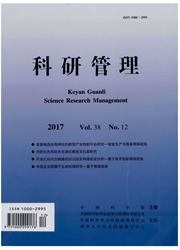

 中文摘要:
中文摘要:
关于原始性创新的研究多集中于其概念、特征、对企业绩效和竞争力的影响等方面,对原始性创新触发机制的研究相对较少。本文以创新理论、利益相关者理论、动机性信息处理理论为基础,从利益相关者视角对触发企业原始性创新的因素及路径进行理论分析,提出原始性创新的触发机制模型。研究结论表明,利益相关者通过内外部两条路径影响原始性创新:其一是,对利益相关者的观点/评价的采纳为创新提供过滤机制,帮助企业筛除新颖但无用的想法,确保创新想法的"有用性",为创新产品的推出和商业化成功提供前提,即从内部触发原始性创新;其二是,利益相关者对企业基于知识的声誉的感知为创新提供信号机制,为创新资金投入提供支持,并有助于用户接受创新产品进而实现创新产品的商业化,即从外部触发原始性创新。研究丰富了原始性创新的相关理论成果,对于促进我国企业的原始性创新提供了理论支持及策略性建议。
 英文摘要:
英文摘要:
Studies on original innovation mostly focus on its concepts,characteristics,and its influence on firm performance and competitive power. There are relatively few studies about the triggering mechanism of original innovation. Based on innovation theory,stakeholder theory and motivated information processing theory,this study analyzed factors triggering original innovation and the triggering paths from the perspective of stakeholder,and then proposed a theoretical triggering mechanism model of original innovation. The research concludes that stakeholders play their roles in original innovation through two paths: the first path is that firm’s taking thoughts or evaluations of users provides filtering mechanism,which helps delete new and useless ideas,ensuring the usefulness of innovation ideas; the second path is that knowledge- based firm reputation built by stakeholders functions as signal mechanism,triggering firm’s original innovation and facilitating innovation commercialization. Our study enriches the literature on original innovation,and proposes theoretical support and practical advices for Chinese firms’ original innovation.
 同期刊论文项目
同期刊论文项目
 同项目期刊论文
同项目期刊论文
 期刊信息
期刊信息
